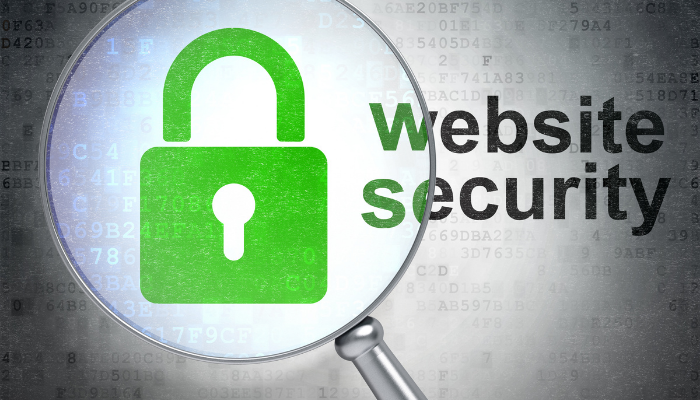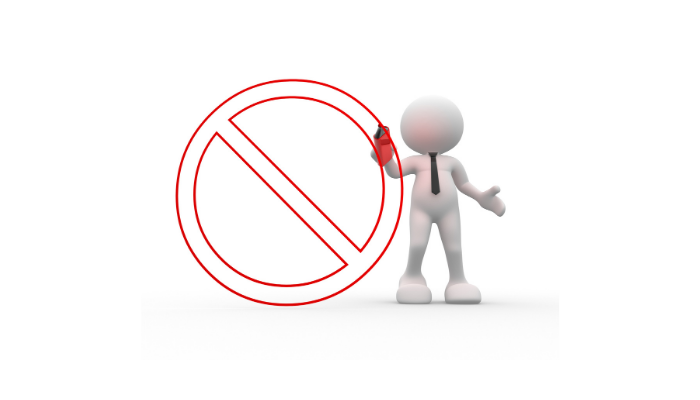
If you depend on e-commerce to sell merchandise, odds are you have a website. Greater still are the odds you’ve implemented tools and procedures to drive web traffic to your website.
Unfortunately, all your hard work could be erased in an instant. According to the Identity Theft Resource Center, 540 publicly reported data breaches occurred in the first six months of 2020.
While this is down from 2019 because of the Covid-19 pandemic, in total, more than 163 million people were affected by these breaches.
In this world of cybercriminal threats, you must be vigilant about website security.
The best defense against data breaches from cybercriminals is regular website security upgrades. Below are five reasons you should upgrade your website security. First, however, we should make clear the difference between upgrade and update.
Upgrading your website security is tantamount to replacing it with something newer and better. Updating simply builds on your existing website security, which may or may not be better and newer. Though it can be costly, upgrading is far better for your website.
Protect Personally Identifiable Information
Cybercriminals commit data breaches because they want personally identifiable information (PII) to sell in a place such as the dark web. The U.S. Department of Labor defines PII as “information that directly identifies an individual.” [1]This includes name, address, social security number, telephone number, email address, etc. In recent years, the scope of PII has been broadened to include any information used for indirect identification. E-commerce is driven by electronic fund transfer. This means the most crucial PII a person has is bank information and credit card numbers. Therefore, when someone comes to a website to buy something, they need to feel safe while there. In other words, they need to trust the website with their credit/debit card information. Because identity theft is lucrative, hackers look for these numbers. Anyone can go to the dark web and buy identities and credit card numbers using a special web browser.Protecting your customer’s PII should be a top priority. Upgrading your website security installs the latest versions of programming codes.
Prevent Backend Entry
 Website patrons use web browsers to access websites and their corresponding website applications. For example, web-based payment applications. These applications often do get breached, many times without the website owner knowing it for hours or even days and months.Underneath the website live security programs. Typically called the back end of a website, firewalls give these web-based applications access to the information used by the website. Hackers look for small holes in the firewall to exploit and gain access to this information. This is typically how hackers steal PII. E-commerce sites use secure encryption to utilize credit card numbers. However, nothing is foolproof.The moment a hacker breaks into a website, his actions are on a running clock to be identified by investigators. Upgrading your website security contains the latest information learned from these investigations. This is similar to keeping a personal computer’s virus protection up to date.
Website patrons use web browsers to access websites and their corresponding website applications. For example, web-based payment applications. These applications often do get breached, many times without the website owner knowing it for hours or even days and months.Underneath the website live security programs. Typically called the back end of a website, firewalls give these web-based applications access to the information used by the website. Hackers look for small holes in the firewall to exploit and gain access to this information. This is typically how hackers steal PII. E-commerce sites use secure encryption to utilize credit card numbers. However, nothing is foolproof.The moment a hacker breaks into a website, his actions are on a running clock to be identified by investigators. Upgrading your website security contains the latest information learned from these investigations. This is similar to keeping a personal computer’s virus protection up to date.
Helps Keep Up with the Hacker’s Cat and Mouse Game
One of the best things you can do to protect your website from hackers is to understand how your enemy thinks. Hackers take delight in playing cat and mouse games of finding holes in your website security. Most notably, hackers find the crime thrilling. [2] When a hacker breaks into your website, he does whatever he wants inside your website until you wall off the security hole. Unfortunately, this is how most security vulnerabilities get discovered. Remember, the thrill for the hacker is finding another hole somewhere else. The cycle starts again like the cat chases the mouse.This is true for both website security as well as email security. Companies like Trustifi can help keep your emails secured from these types of cyber criminals. Thinking like a hacker means you understand his motivations. While there can be a monetary reason for the hack, many hackers are motivated by moral values. Thus, website security is reactive, not proactive. Thinking like a hacker means you are on constant guard for the next attack. The best way to stay on guard is with regular website security upgrades. In other words, think proactively and practice threat assessment.
Upgrading Website Security Means Updating Your Website
In today’s volatile electronic world, technology itself evolves almost faster than humans can keep up with. Good web developers know this and keep everything up to date. Keeping software and hardware obsolescence at bay need to be at the forefront of how an IT department operates. This is crucial for today’s web application rich websites. Many combine several media-rich elements that give users a better experience. Furthermore, this is part of the exploding web-based advertising for e-commerce. Consequently, upgrading your website security leads to updating (and in some cases, upgrading) your website to enhance a customer’s buying experience. This is true for anyone with a website e-commerce based or not. If not your website, someone else’s.
Keeps Your Website Off the Blacklist
 In the world of website development for e-commerce, there is something called the “blacklist.” Google quarantines thousands of websites daily and puts on this blacklist because the cyber community, i.e., search engines and cybersecurity companies, deems them unsafe to visit. Hackers frequently look for back end security holes to steal bandwidth. This happens without you knowing it. Because of this, you lose your website ranking or the place you end up on the search results page. The overwhelming majority of web traffic originates in search engines. Blacklisted means you become invisible on the web. For e-commerce, this is unbelievably bad. Upgrading your website security identifies security breaches and keeps your website off the dreaded blacklist.In closing, regular website security upgrades are a significant way to fight off cybercriminal threats. These upgrades keep your website safe and relevant in the modern world. Conversely, it helps to understand how a hacker thinks so you can be proactive about threat assessment.
In the world of website development for e-commerce, there is something called the “blacklist.” Google quarantines thousands of websites daily and puts on this blacklist because the cyber community, i.e., search engines and cybersecurity companies, deems them unsafe to visit. Hackers frequently look for back end security holes to steal bandwidth. This happens without you knowing it. Because of this, you lose your website ranking or the place you end up on the search results page. The overwhelming majority of web traffic originates in search engines. Blacklisted means you become invisible on the web. For e-commerce, this is unbelievably bad. Upgrading your website security identifies security breaches and keeps your website off the dreaded blacklist.In closing, regular website security upgrades are a significant way to fight off cybercriminal threats. These upgrades keep your website safe and relevant in the modern world. Conversely, it helps to understand how a hacker thinks so you can be proactive about threat assessment.
[1] U.S. Department of Labor. Guidance on the Protection of Personal Identifiable Information. Department of Labor, https://www.dol.gov/general/ppii[2] Madarie, Renushka. “Hackers’ Motivations: Testing Schwartz’s Theory of Motivational Types of Values in a Sample of Hackers.” International Journal of Cyber Criminology 11.1 (2017).





